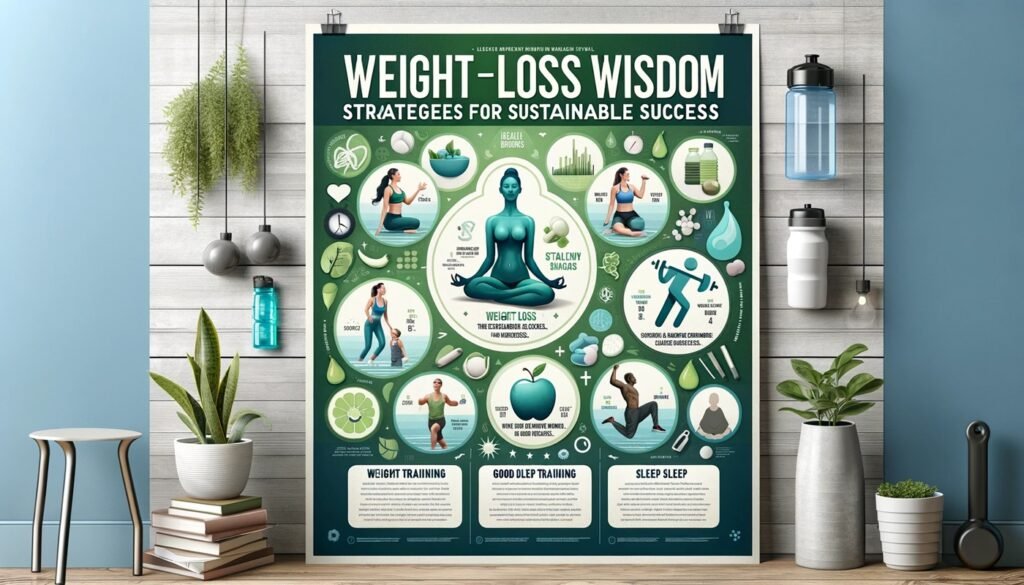
Losing weight can be a challenging journey, but with the right approach, it’s possible to achieve sustainable results while improving overall health. This blog post will explore effective strategies for weight loss that go beyond fad diets and temporary solutions, offering insights into long-term lifestyle changes, nutritional advice, and fitness tips.
Contents
Understanding Weight Loss
Weight loss occurs when you consistently consume fewer calories than you burn. The key to successful weight loss is creating a manageable calorie deficit while ensuring you receive adequate nutrition.
Effective Weight Loss Strategies
- Set Realistic Goals
- Start with clear, achievable goals. A safe and sustainable rate of weight loss is 1-2 pounds per week. Setting realistic targets helps maintain motivation and prevents discouragement.
- Focus on Nutrition
- Balanced Diet: Incorporate a variety of foods in your diet from all food groups to ensure balanced nutrition.
- Portion Control: Learn to control portion sizes to avoid consuming too many calories.
- Mindful Eating: Pay attention to what and when you eat. Avoid distractions during meals to help control overeating.
- Increase Physical Activity
- Regular exercise not only burns calories but also builds muscle that boosts your metabolism. Aim for at least 150 minutes of moderate aerobic activity or 75 minutes of vigorous activity each week, along with muscle-strengthening exercises on two or more days a week.
- Find activities you enjoy to ensure you can stick with them long-term.
- Stay Hydrated
- Drinking water can help control hunger and maintain a healthy metabolism. Sometimes, thirst is confused with hunger, leading to overeating.
- Get Enough Sleep
- Lack of sleep can disrupt hormones that regulate appetite and hunger, making it harder to maintain weight loss. Aim for 7-9 hours of quality sleep per night.
- Manage Stress
- High stress can lead to emotional eating and weight gain. Incorporate stress-reduction techniques such as yoga, meditation, or deep breathing into your daily routine.
Conclusion
Losing weight effectively requires a combination of dietary changes, increased physical activity, and lifestyle adjustments. By adopting a holistic approach, you can achieve sustainable weight loss and improve your health over the long term.
FAQs about How to Lose Weight
Q: What is the best diet for losing weight?
A: There is no “best” diet for everyone. The best diet is one that is balanced, fits your lifestyle, and can be maintained over time. Focus on diets rich in fruits, vegetables, lean proteins, and whole grains.
Q: How often should I weigh myself?
A: It’s typically recommended to weigh yourself once a week. Daily fluctuations are normal and can be discouraging. Consistent, weekly check-ins can provide a more accurate reflection of your progress.
Q: Can I lose weight without exercising?
A: Yes, weight loss can be achieved through dietary changes alone, but combining diet and exercise can lead to more effective and sustained weight loss.
Q: Are weight loss supplements safe and effective?
A: Some supplements can aid in weight loss, but they should not replace traditional methods of weight loss. Always consult a healthcare provider before starting any supplement, as some can have side effects.